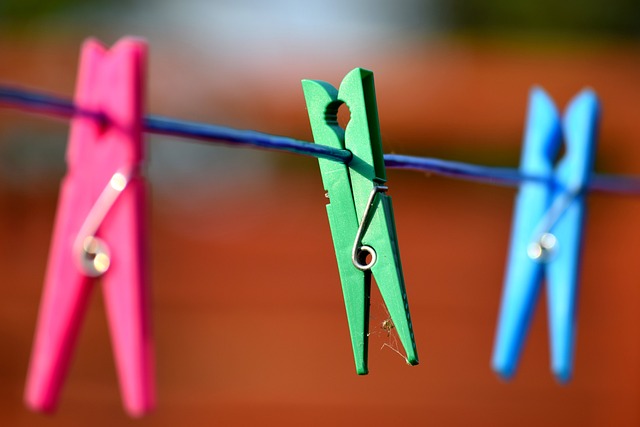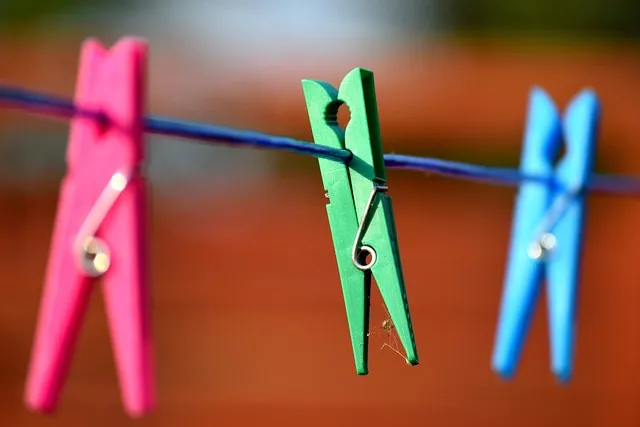How Do Energy-Efficient Dryers Perform in High-Humidity Environments?
These dryers often feature advanced sensors that adjust drying times based on the dampness of your clothes. This means they’re smart enough to sense when it’s super humid and automatically tweak their performance to ensure your laundry comes out just right. It’s like having a personal assistant who knows exactly when to add more time to the task.
Additionally, many energy-efficient models come equipped with enhanced ventilation systems. Think of this as their secret weapon for battling excess moisture. These systems help in expelling the humid air more efficiently, preventing the dryer from becoming overwhelmed and ensuring a more consistent drying process.
Also, the design of these dryers often includes improved insulation and seals. This not only keeps the heat in but also reduces the impact of external moisture on the drying cycle. So, when the weather outside is like a steamy jungle, your dryer remains unfazed, performing optimally.
In high-humidity settings, these dryers excel by utilizing their specialized features to handle extra moisture and keep your clothes dry without excessive energy use. This means you get the ultimate drying performance while staying eco-friendly.
Energy-Efficient Dryers: A Game-Changer for High-Humidity Homes?
High humidity can turn your laundry room into a sauna, making it tough for traditional dryers to do their job effectively. You might be left with clothes that feel like they’ve been marinating in a moisture bath rather than drying. Energy-efficient dryers, however, are designed to tackle this challenge head-on. They’re like the superheroes of the dryer world, equipped with technology to handle even the most stubborn of dampness.
What makes these dryers so impressive? First, they use advanced moisture-sensing technology. Think of it as a high-tech way of knowing exactly when your clothes are perfectly dry, not a minute too soon or too late. This means less energy wasted on over-drying and more money saved on your utility bill.

Then there’s the heat pump feature. Instead of cranking up the heat and turning your laundry room into a sweat lodge, energy-efficient dryers use a heat pump to gently circulate warm air. It’s like having a gentle breeze on a humid day—effective, but far less oppressive.
These dryers are also great at reducing wrinkling, a common issue in high-humidity areas. No more pulling out clothes that look like they’ve been through a roller coaster ride. They dry your clothes evenly and thoroughly, ensuring they come out looking fresh and ready to wear.
In a nutshell, if you’re battling high humidity and traditional dryers just aren’t cutting it, energy-efficient dryers could be your game-changer. They offer a blend of advanced technology and efficiency that’s hard to beat.
High-Humidity Havens: Testing the Performance of Energy-Efficient Dryers
In regions where humidity is sky-high, these advanced dryers shine by using less energy to get the job done. They come equipped with innovative moisture sensors that adjust drying times based on the actual dampness of your clothes, ensuring they come out perfectly dry without wasting a single watt of energy. It’s like having a savvy assistant who knows exactly when your clothes are ready—no more guessing games or over-drying.
What sets these dryers apart is their ability to tackle moisture effectively without causing a spike in your energy bills. They utilize technologies like heat pump systems or dual-stage drying, which are incredibly efficient at removing moisture while consuming minimal power. Picture this: you’re saving on energy costs while still enjoying the convenience of freshly dried clothes, even in the most humid conditions.
And let’s not forget about the impact on your home. High humidity can make indoor air feel clammy and unpleasant, but an energy-efficient dryer helps mitigate this by expelling less moisture into the air compared to traditional models. So, it’s not just your clothes that benefit—your whole living environment feels fresher and more comfortable.
In essence, if you’re living in a high-humidity haven, investing in an energy-efficient dryer isn’t just a smart move—it’s a necessity for maintaining both comfort and efficiency in your daily life.
Can Energy-Efficient Dryers Keep Up in Damp Conditions? An In-Depth Analysis
Let’s dive into this. Imagine you’re in a region where humidity levels are constantly on the higher side, or you’re dealing with a particularly wet season. This is where the efficiency of your dryer really comes into play. Energy-efficient dryers are designed with advanced technology to handle various environmental challenges, including moisture. They typically feature sensors that detect when clothes are dry, preventing over-drying and thus conserving energy.
In damp conditions, these dryers have an edge because they can adapt to higher humidity levels. Their moisture sensors and advanced airflow systems are built to maintain performance despite the extra moisture in the air. It’s kind of like having a GPS that recalibrates when you take an unexpected detour. The dryer adjusts its drying cycles to ensure that clothes come out fresh and dry, without consuming excessive energy.
However, the effectiveness can vary depending on the model and brand. High-efficiency dryers with features like dual heating elements or advanced drying algorithms tend to perform better in challenging environments. They ensure that even with higher ambient moisture, your clothes are dried thoroughly and efficiently.
So, while energy-efficient dryers are generally well-equipped to handle damp conditions, it’s essential to choose a model known for its reliability and adaptability. Just as you wouldn’t buy a car without checking its all-weather capabilities, picking the right dryer involves understanding its performance under various conditions.
From Muggy to Moist: How Energy-Efficient Dryers Handle Humidity
Think of humidity as that sneaky guest who just won’t leave. When the air’s thick with moisture, drying clothes becomes a bit like trying to dry off after a swim in a sauna. Traditional dryers can struggle with this, often wasting energy in the process. That’s where the energy-efficient models come into play. They’re like the ultimate host who knows just how to kick humidity out of the room, making sure your clothes get dried quickly and effectively.
Energy-efficient dryers use advanced technology to manage and reduce humidity. They often feature heat pump systems or moisture sensors that adjust the drying cycle based on how damp your clothes are. Imagine these sensors as personal assistants that know when to speed up or slow down the drying process. This not only speeds up drying time but also cuts down on energy use—so you’re saving on your utility bills while keeping your clothes in top shape.
Another cool trick these dryers use is enhanced airflow. By improving how air circulates, they ensure that moist air is quickly moved out and replaced with drier air. It’s like having a super fan that keeps the air fresh and dry, even when the humidity levels are high.
So, if you’ve been battling with muggy, moisture-filled laundry days, an energy-efficient dryer could be your game-changer. With smarter technology and efficient designs, these dryers make sure your clothes come out perfectly dry and your home stays energy-savvy.
Energy-Efficient Dryers Under the Microscope: Performance in High-Humidity Settings
Imagine your laundry room as a jungle of steam and moisture. High humidity can be a real party pooper for dryers, causing them to work harder and longer to dry your clothes. But fear not! Energy-efficient dryers are engineered to tackle this challenge with impressive finesse. They come equipped with advanced moisture sensors that gauge how damp your clothes are and adjust drying times accordingly. It’s like having a personal laundry assistant who knows just when to step in and finish the job.
These dryers also feature sophisticated airflow systems designed to circulate air more efficiently, even when the room feels like a sauna. Think of it as a high-tech fan club that ensures your clothes are getting the breath of fresh air they need. By optimizing airflow, these dryers not only get your laundry dry but do so with less energy, which means you’re saving on your utility bills too.
But there’s more—some models use heat pump technology, which is like a superhero of drying. This tech reuses hot air instead of generating new heat, making it incredibly efficient. In high-humidity conditions, this means the dryer can still perform like a champ without guzzling energy.
In essence, energy-efficient dryers are more than just a green choice; they’re designed to excel even in the most challenging environments. With their innovative features and smart technology, they turn high-humidity hurdles into mere bumps in the road, keeping your clothes dry and your conscience clear.
The Humidity Challenge: How Well Do Energy-Efficient Dryers Stack Up?

Energy-efficient dryers, as the name suggests, are designed to use less energy while still getting your clothes dry. But do they really excel at dealing with humidity? In short, yes, but with some caveats. These dryers often feature advanced technology like moisture sensors that detect when clothes are fully dry. This smart feature means they can adjust the drying time accordingly, avoiding that dreaded over-drying and saving energy in the process.
Imagine your dryer as a seasoned chef perfecting a recipe. Just as a chef tastes and adjusts seasoning, your dryer senses the moisture level and fine-tunes its drying cycle. This not only helps in conserving energy but also ensures your clothes come out just right.
However, the effectiveness of energy-efficient dryers can vary. Some models are equipped with heat pump technology, which is excellent for controlling humidity and drying clothes evenly. Others might rely more on traditional methods, which can sometimes fall short if your laundry pile is extra damp or if you’re drying heavy items like towels.
So, while these dryers do a commendable job in battling humidity, their performance can depend on specific features and how well they match your laundry needs. The key is to look for models with advanced moisture-sensing capabilities or heat pump technology to truly tackle the humidity challenge and keep your clothes fresh and dry.


PneZltYS frosb vJZFuG tjW